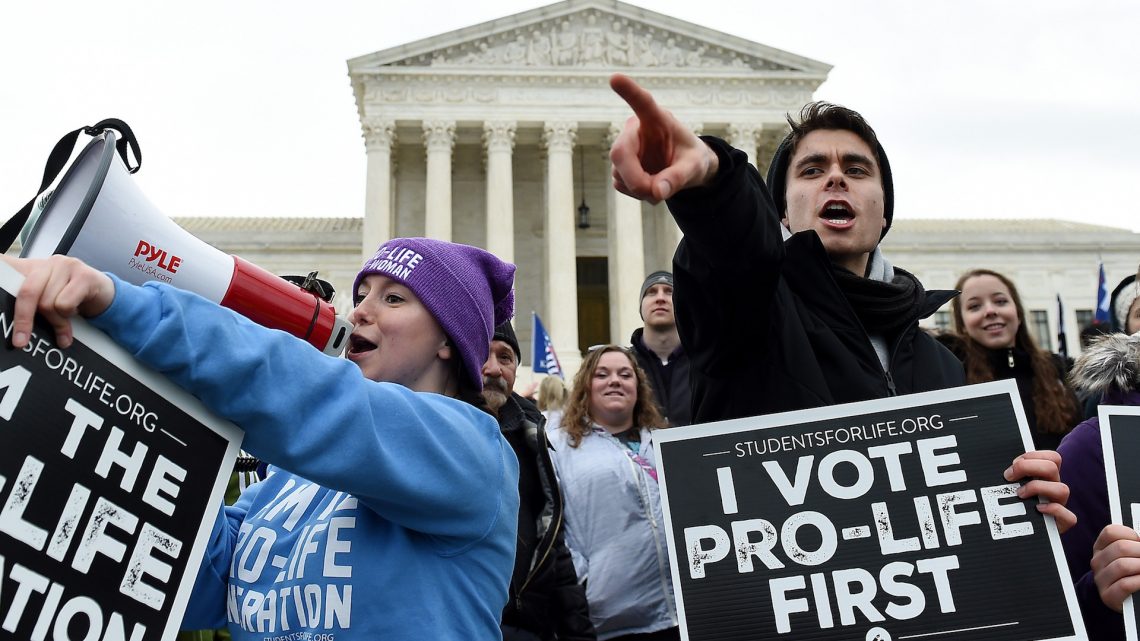
Coronavirus is Destroying Abortion Access Across the U.S.
March 28, 2020Over the past few weeks, as vast swathes of U.S. society have shut down in an effort to curb the coronavirus, the pandemic has achieved what years of Supreme Court battles and hundreds of restrictions could not: It has choked off access to legal abortion.
The global disruption caused by coronavirus has become yet another battle in the American abortion wars, and it’s one that anti-abortion activists are winning.
Multiple governors and attorney generals have asked their states’ clinics to stop providing abortions. Clinics that rely on doctors who fly in to perform the procedure are struggling to bring them in. Independent providers, which provide the majority of American abortions, are facing financial devastation.
“Probably every independent clinic in the country is at risk,” said Nikki Madsen, executive director of the Abortion Care Network, a national membership group for independent abortion providers. “This is the thing that scares me the most, of anything that I’ve seen in the last 18 years, of potentially really decimating abortion access in this country.”
In the four decades since the Supreme Court legalized abortion nationwide in the 1973 decision Roe v. Wade, no state has gone without at least one abortion clinic. Now, several are teetering on the brink of seeing their clinics vanish. By declaring that abortions are “non-essential” or “elective,” or that medical procedures only be performed in case of an emergency, officials in six states — Ohio, Texas, Mississippi, Tennessee, Oklahoma, and Kentucky — have called for clinics to stop providing most abortions.
Planned Parenthood clinics in Ohio have vowed to continue to provide abortions, arguing that abortion is time-sensitive and essential (a position supported by the American College of Obstreticians and Gynecologists). But multiple Texas clinics contacted by VICE News this week said that they were no longer performing abortions. Disobeying any COVID-19-related orders could land a provider in jail for up to 180 days or facing penalties of up to $1,000. Providers, including Planned Parenthood, have now sued the state.
The order to stop performing abortions also hasn’t entirely stopped Texans from getting them. Instead, they’re leaving the state: By the end of March, Fund Texas Choice will have paid for 27 people to travel out of Texas to get abortions — more than double the number of people the group paid for in February.
“You would put people at an increased risk of not just contracting the virus, but spreading it,” Program Chair Stephanie Gomez said of the Texas state government. “Because you are essentially forcing people to continue to travel.”
The anti-abortion movement has celebrated the states’ orders. More than 50 leading anti-abortion activists signed a recent letter to Alex Azar, the secretary of the U.S. Department of Health and Human Services. Among other demands, the letter urges public officials to make abortion clinics do as some other healthcare centers have done: close, and donate their personal protective equipment to providers caring for COVID-19 patients.
“While we are in a hectic race to save lives,” the letter reads, “Planned Parenthood and other powers in the abortion industry remain insistent on taking the lives of innocent unborn children.”
Frank Pavone, a Catholic priest and the national director of Priests for Life, signed the letter. While the state attempts to close clinics are temporary, Pavone believes that the lessons of the pandemic will be felt long after the actual threat subsides.
“Everybody is, you know, is accepting to a large extent restrictions on their freedom. Why? For the purpose of saving lives,” Pavone said. “What we’re happy about is, isn’t it nice to have everybody talking about how we can save lives and even accepting restrictions on our freedom to do that?”
Abortion rights supporters and opponents have both accused the other side of trying to politicize the pandemic. After a reported skirmish in Congress over whether a coronavirus relief bill would include language from the Hyde Amendment — which blocks federal dollars from paying for most abortions — the Republicans appear to have emerged victorious in their quest to block Planned Parenthood from accessing federally-backed loans.
Under the bill passed by Congress Friday, the Trump administration will have broad discretion to block Planned Parenthood from emergency loans crafted by the new stimulus package. The bill also uses Hyde-style language to bar state and local governments from allocating coronavirus rescue funds to abortion services.
“This does provide a unique moment in which American voters, legislators, all of the above and everyone else, can consider whether or not abortion is the most important thing that we’ve got going as as society, because that’s how it’s pushed at us, that somehow it’s a constitutional right that can’t be interrupted,” said Kristi Hamrick, who handles communications for Students for Life of America, which bills itself as the nation’s largest youth anti-abortion organization. “It also just opens the door to the obvious question: Why are we allowing these people to operate as they have been?”
It’s unclear what kind of government relief independent abortion clinics can access now. (Any clinic that doesn’t belong to Planned Parenthood is typically thought of as “independent.”) Many have postponed or cut services and appointments, as they try to keep the number of people in the clinic at a minimum and hold off on non-urgent care.
“Abortion providers don’t have cash reserves, especially independent abortion care providers, most of whom are taxable entities and small businesses,” Madsen explained.
For Madsen, the consequences of the coronavirus are, in some ways, even more dangerous than anything a Supreme Court justice could decide. Even if Roe v. Wade is overturned one day, states would decide the legality of abortion. Liberal states would likely choose to preserve access to the procedure.
The coronavirus pandemic, however, is affecting people’s access to abortion in every state, including in Democrat-controlled states. And it’s happening all at once.
Valerie Kipnis and Madeleine May contributed reporting.
Cover: Anti-abortion activists demonstrate in front of the the US Supreme Court during the 47th annual March for Life on January 24, 2020 in Washington, DC. (Photo: OLIVIER DOULIERY/AFP via Getty Images)

